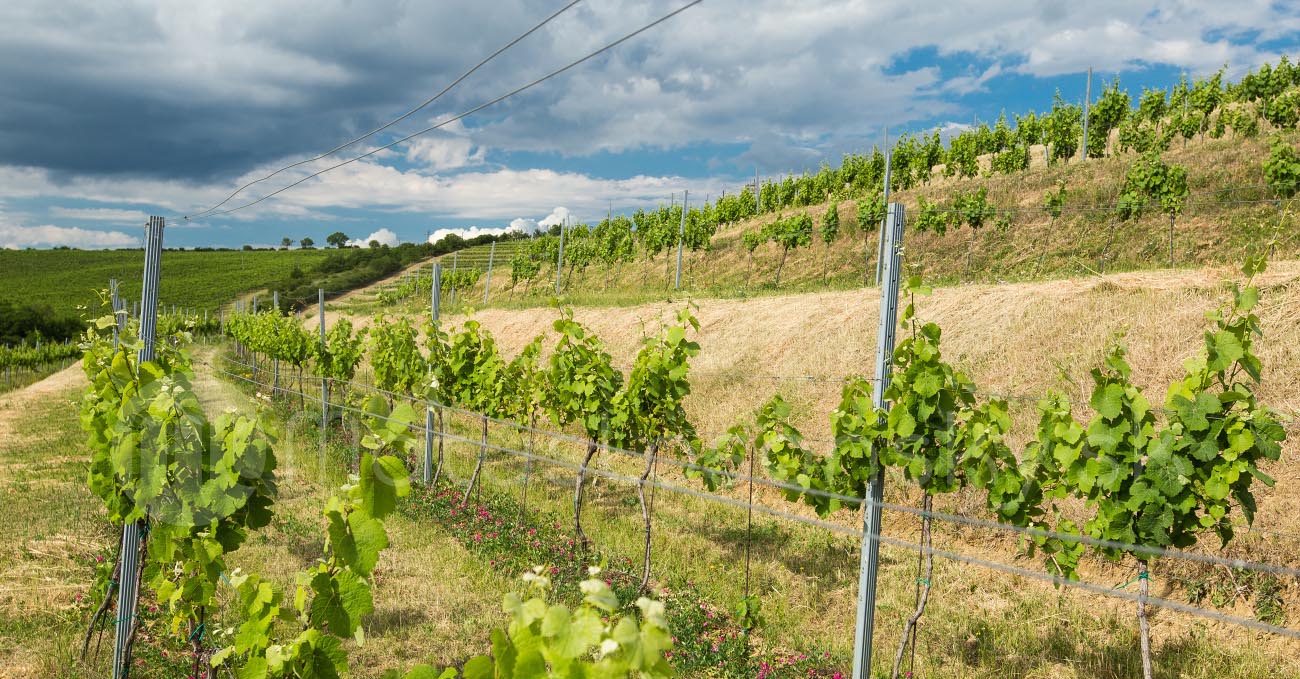
There were 107 samples that made it to the spring finals and 52% of them were rose wines. And most of them met consumer demands for wine with a clear trace of residual sugar.
Finally, 10 rose wines out of a total of 25 get through on the shelves of the National Wine Salon, which are reserved by the status of the competition for aromatic and more ripening wines, as well as sparkling wines. The remaining three quarters of the wines, including Rieslings, Gewürztraminers, Burgundy wines, Slovak new nobles and a whole pleiad of red wines, are still ripened in the cellars and will be picked up for the salon in September.
After the first part of the National Wine Salon, in which a representative set of the hundred best wines of the country has been selected for the second decade, it can be stated that Slovakia is full of incredible paradoxes.
Less vineyards, more winegrowers
"The area of nascent vineyards is decreasing from year to year (only 8,800 hectares), but the number of registered wineries is increasing. There are more than 500 of them, while three years ago there were only 300," said Jaroslava Kaňuchová-Pátková, director of the Association of Winegrowers and Winemakers. The wineries are founded by ambitious young people who count every euro, but also by strong investment groups buying 50 or even 100 hectares of vineyards. Another feature of the Slovak wine fever is the obsession with rose wines, where the demand for semi-dry and semi-sweet wines is growing. We could see a proof of this on the last wine tasting for samples trying to get into the National Wine Salon.
The behavior of wine lovers has two positions - one, where they try to present themselves in the form of experts and claim to drink dry wines, and the other real one, when they actually order and buy, especially for rose, but often white wines., semi - dry and semi - sweet liquids, which have a higher content of residual sugar.
"Demand on the market shows what the real priorities of consumers are and producers are adapting to this trend," said Vladimír Mrva, a winemaker from Trnava who chaired one of the three tasting commissions. Residual sugar is a fragile thing in wine, but it is duly justified when it is handled sensitively. Rose wines attract with freshness, fruitiness, while sugar in certain circumstances can suppress the structure of the wine and finally its attractiveness and longevity of the wine.
Let us add, however, that especially the rose champions proved to be excellent products of the Slovak rose wine school. The dry Cabernet Sauvignon Rosé from Vinosady resident Juraj Vršek attracted with its beautiful color of cherries ripened in May, it smelled of wild berries, its taste was slightly spicy and juicy like the first strawberry. Between 2011 and 2018, Vršek became the champion of the salon for the third time. The third title says that he has talent for the rose wine, which comes from the village Bátorove Kosihy on the south of Slovakia. By the way, Vršek's wine attended the competition just before its closing date - the last became the first.
Dressed or naked
One sample and right away a champion, it's called sovereignty. It was proved by another champion Ľudovít Žofiak, a ten-hectare winegrower from Modra, a typical representative of a small family winery. His rose Pinot Noir had rosy cheeks like a young bride. Due to this wine, Žofiak has sold out the winery for social events, especially weddings, for the last few years. His right hand Oľga Bejdáková says that Modra has become the capital of Slovak weddings.
Rose is the wine of wedding guests, especially women. And the reason? Juraj Vršek explained it pertinently. "Rose wine with residual sugar (it is 7 grams in his dry wine) ticks its tongue with fresh acids and people feel great about it." According to Bejdáková, "the wine in the wedding glass can be perfectly decorated with strawberry, currant and it's simply" trendy ".
We did notice Irsai Oliver, the champion of white wines, which was shown in the dry version by the young company Baynach from Bojničky near Hlohovec. Company is on the market for the second year and right away he has a champion in the salon, which says at least two things. First, that the terroir discovered by German colonists in the thirteenth century has great potential. Secondly, the key to the mentioned Irsai Oliver is the enthusiasm, ingenuity and skill of the trio Dušan Danko, Marek Antonín and Richard Gažo. Irsai Oliver surprised in all aspects - with the smell of flowering white-thorn and elder, and fresh grapes appeared in the taste.
...see the full article here